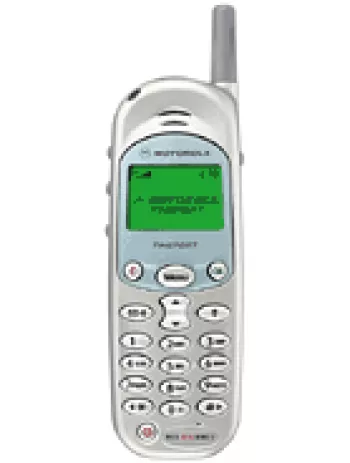
Overview
The Motorola A732 is a classic feature phone that was launched in July 2005, a time when mobile phones were transitioning from basic communication devices to more multimedia-focused gadgets. Although the Motorola A732 is discontinued, it remains a memorable device for its time due to its utility and design catering to the needs of a feature phone user. This article explores the specifications and features of the Motorola A732, along with its design aspects, to give a better understanding of its capabilities and how it fit into the mobile phone market back then.
Network and Connectivity
In terms of network technology, the Motorola A732 was equipped with GSM support, which was common in phones of that era. It operated on 2G bands GSM 900, 1800, and 1900, allowing for decent network coverage in many regions worldwide. While it supported GPRS Class 10 for data services, it did not support EDGE, limiting the data speed capabilities. Connectivity options were fairly basic, typical of feature phones during this time, which included Bluetooth 1.2 for short-range wireless communication but lacked WLAN capabilities. A proprietary USB port was included for wired data transfer.
Design and Build
The Motorola A732 featured a compact and portable design with dimensions of 88 x 43 x 21.8 mm and a weight of 95 grams, making it easy to carry around. This phone utilized a Mini-SIM card and was constructed to be user-friendly with its removable Li-Ion battery, which was a standard back then. The body was available in silver and black color variants, which added to its sleek and simple aesthetic appeal.
Display
The phone boasted a 1.8-inch TFT display with a resolution of 128 x 160 pixels, amounting to a pixel density of approximately 114 ppi. While the screen size and resolution may seem modest by today's standards, it was adequate for the basic display needs of a feature phone, capable of displaying vibrant 65K colors with satisfactory clarity for everyday tasks.
Camera
The Motorola A732 was equipped with a single VGA main camera, which had a resolution of about 0.3 megapixels. At the time, a camera with such capabilities was considered decent for taking basic photos and was a notable addition for users wanting to capture simple, everyday moments on their devices. It also supported video recording functionality, albeit with limited quality.
Memory and Storage
One of the highlights of the Motorola A732 was its microSD card slot, providing expandable storage options for users. This feature was crucial for users who wished to store more photos, videos, and other media files. It could also store up to 1000 phonebook entries with photo call capabilities, a useful feature for organizing contacts efficiently. Call records could be maintained as well, facilitating reference for previous communication.
Sound and Multimedia
On the sound front, the Motorola A732 had a loudspeaker which was standard for most phones at the time. Users could customize their alert types with vibration and downloadable polyphonic ringtones. However, it did not include a 3.5mm headphone jack, requiring users to rely on the phone’s loudspeaker for audio output. The phone supported downloadable games, appealing to users looking for entertainment on the go. Additionally, it incorporated Java MIDP 2.0 support, enhancing its multimedia and application handling capabilities.
Battery Life
The device was powered by a removable Li-Ion battery with a capacity of 1000mAh. This was sufficient for a feature phone, providing up to 270 hours in standby mode and up to 6 hours of talk time. This battery performance was respectable for prolonged usage and ensured that the phone could last through a day of moderate use without frequent recharging.
Software and User Experience
Running on a basic feature phone platform, the Motorola A732 aimed to fulfill essential mobile communication needs. It supported messaging features like SMS, EMS, and MMS, allowing users to stay connected with family and friends. Additionally, it incorporated a WAP 2.0/xHTML browser for basic internet activities, which could be considered limited but was useful for simple web browsing tasks.
Conclusion
The Motorola A732, while not equipped with the high-end features of today’s smartphones, served its purpose effectively during its time in the market. Its offerings in terms of design, network capabilities, camera, and multimedia features made it a competitive choice within the feature phone category. Though discontinued today, it stands as a testament to Motorola's ability to design user-friendly and practical mobile devices that met the essential needs of users during the mid-2000s.
Key Features of Motorola A732
- Compact and Lightweight Design: Weighing only 95 g with dimensions 88 x 43 x 21.8 mm.
- GSM Technology: Supports GSM 900 / 1800 / 1900 bands.
- Expandable Memory: Dedicated microSD card slot.
- TFT Display: 1.8 inches with 65K colors and a resolution of 128 x 160 pixels.
- Bluetooth Connectivity: Version 1.2 for wireless data transfer.
- Ample Phonebook Capacity: Stores up to 1000 entries with photo call feature.
- Removable Battery: Provides up to 270 hours of standby time and up to 6 hours of talk time.
- VGA Camera: Basic photo and video capabilities.
- Java Support: Java MIDP 2.0 for additional applications and games.
- Multi-format Messaging: Supports SMS, EMS, MMS.
Disadvantages of the Motorola A732
- Limited Network Technology: Only supports GSM with no EDGE capability.
- Discontinued Model: The device is no longer available, having been announced in 2005.
- Low Display Resolution: Screen resolution is 128 x 160 pixels with a low pixel density of approximately 114 ppi.
- Basic Camera Features: Equipped with a single VGA camera and lacks a selfie camera.
- No Advanced Sound Options: Does not include a 3.5mm headphone jack.
- Lacks Modern Connectivity: No WLAN, GPS, or Radio features are available, and only Bluetooth 1.2 is supported.
- Proprietary USB: Uses a proprietary USB for connectivity, limiting compatibility with other devices.

View Also
More Phones
All Rights Reserved +14266 Phones © Mobilawy 2025

























